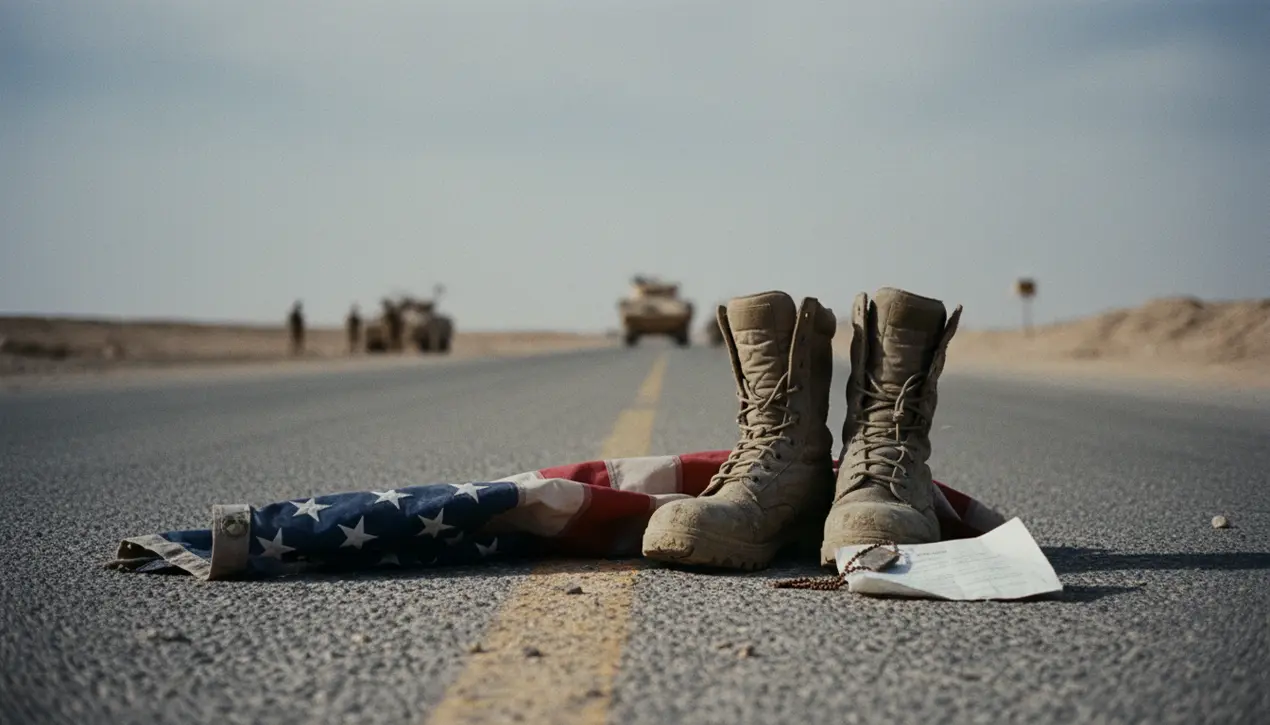
Politicsconflict & defenseWar Reports and Casualties
New Evidence in Notorious Iraq War Killing Implicates US Marines.
OL
Oliver Scott
3 hours ago7 min read
The recent emergence of new evidence concerning a notorious killing from the Iraq War has sent shockwaves through the corridors of military and political power, fundamentally challenging the official narrative of the United States' longest-running war crimes investigation and forcing a brutal reassessment of accountability for its armed forces. This isn't merely a historical footnote; it's a live geopolitical fault line, a high-stakes scenario where the credibility of a superpower's military justice system is on the line, with profound implications for its strategic posture and diplomatic leverage in an already volatile Middle East.The specific incident, long shrouded in the fog of war and bureaucratic inertia, involves US Marines and allegations of an extrajudicial killing, a case that has languished for years, ostensibly investigated but seemingly destined for the dusty archives of inconclusive inquiries. The new evidence, reportedly including forensic materials and witness testimonies previously overlooked or suppressed, doesn't just suggest procedural failures; it points to a potential systemic breakdown, raising the alarming risk of a major scandal that could dwarf previous controversies.From a risk analyst's perspective, the calculus here is clear: the probability of significant reputational damage for the US Department of Defense has just spiked dramatically, while the downstream consequences could include renewed anti-American sentiment in Iraq, complicating ongoing security cooperation, and providing potent propaganda fodder for adversarial states and non-state actors alike. We must consider the precedent set by past incidents, from the My Lai massacre in Vietnam to the Abu Ghraib abuses, where initial denial and obfuscation ultimately led to far greater political and strategic costs than immediate transparency would have incurred.The central question now is whether the US military and political establishment will treat this as a contained legal matter or as a full-blown crisis requiring a transparent, independent review. The alternative scenario—a continued stonewall—carries its own severe risks: erosion of trust among allied nations, demoralization within the ranks of the military's own justice corps, and a lasting stain on the legacy of the entire Iraq conflict. This new development is not an isolated data point; it is a critical stress test for the mechanisms of accountability that are supposed to distinguish a rule-of-law state, and how Washington responds will be dissected in capitals from Baghdad to Beijing, setting a precedent for how future allegations against powerful militaries are handled in an increasingly transparent, albeit complex, global information environment.
#Iraq war
#US Marines
#war crimes
#investigation
#accountability
#featured
Stay Informed. Act Smarter.
Get weekly highlights, major headlines, and expert insights — then put your knowledge to work in our live prediction markets.
Comments
Loading comments...
© 2025 Outpoll Service LTD. All rights reserved.